|
Are you tired of the feasting? We are at the tail end of feasting after the Easter season with the celebration of the Solemnity of Corpus Christi last Sunday. We experienced the 50 days of Easter, the Solemnity of the Ascension of the Lord, Pentecost, the Solemnity of the Holy Trinity, and finally, the Solemnity of Corpus Christi. In my family, we have partaken in a fair share of feasting on treats, and I am almost ready for a period of fasting again. The transition from the Easter season into Ordinary Time can lead to a misunderstanding of what the Church is calling us to during this liturgical season. It is easy to see Ordinary Time as boring or as a time for laziness, but if we look at the liturgical calendar and journey along with the Apostles in the Scriptures, we can see that it is just the opposite. Reflecting back on the Scriptures read during Lent and the Triduum, we see the disciples’ confusion about what Jesus was preparing them for. He warned them often that He had to suffer, die, and rise, and yet they were still in hiding and unsure of their mission after the crucifixion and Resurrection. Scripture states that they were locked in the Upper Room in fear of the Jews after Christ’s death and then that they were left “looking intently at the sky” after Christ’s Ascension. It is not until Pentecost, when the Holy Spirit descends upon the disciples, that the gift of understanding is given to them and they are able to go forth and spread the Gospel message. In celebrating the Solemnities of the Ascension and Pentecost after Easter Sunday, we come to understand our role as Christians on mission. We are reminded that we too are equipped with the Holy Spirit for the call to go out to all the nations and proclaim the Good News, baptizing in the name of the Trinity. We next celebrate the Solemnity of the Holy Trinity, a day to contemplate that the Holy Trinity is relationship itself, and we are invited into that relational exchange of love among Father, Son and Holy Spirit. As the Catechism explains, "By the grace of Baptism ‘in the name of the Father and of the Son and of the Holy Spirit,’ we are called to share in the life of the Blessed Trinity” (CCC 264). This Solemnity invites us to ponder the vastness and majesty of God in three persons and His great love for His creation. Finally, the Church celebrates the Solemnity of Corpus Christi (Latin for “Body of Christ”). Christ, after the Ascension, remains with us in the bread and wine transformed into His Body and Blood during the celebration of the Mass. This Solemnity focuses our attention and hearts on the greatest gift to the Church: the Body, Blood, Soul and Divinity of our Lord in the Holy Eucharist. Together with the celebration of the other feasts after Easter Sunday, the celebration of Corpus Christi is a moment of grace given to us today that propels us into this season of Ordinary Time. If we look at the calendar, the Church has been preparing our hearts to enter into this celebration of Corpus Christi. We needed Jesus to establish the Eucharist (Holy Thursday), to suffer, die and rise (Triduum), to return to the Father (Ascension), and to send the Church an outpouring of understanding for Her mission through the Holy Spirit (Pentecost). As a result, we can ponder and enter into the life of the Holy Trinity (Solemnity of Holy Trinity). All of these feasts prepare the Church for the Solemnity of Corpus Christi and for our journey into Ordinary Time. The Holy Eucharist is the strength for our journey in the ordinary. The Body and Blood of Jesus assists us in following the will of God as we receive God Himself. The Solemnity of Corpus Christi can be celebrated with hope that Jesus is with us in this Holy Sacrament, and the Church is calling us to continued growth in Ordinary Time. Questions for Reflection: How can you use Ordinary Time in order to grow in your faith? What graces from Lent and Easter can help propel you into Ordinary Time?
0 Comments
Happy New Year! We have officially brought the Church year to a close and have entered into a new liturgical year with the first week of Advent. It is a time of new beginnings and yet a profound time of waiting and preparation as we anticipate the joy of the birth of a tiny babe in a manger. I find it interesting that this time of waiting comes right at the beginning of the new liturgical year. In the secular world, New Year’s celebrations are immediate and urgent. We count down to the strike of midnight, kiss our loved ones, announce our resolutions, and toast the entrance of the next phase. Some of us celebrate the end of another passing year with relief. Some feel a deep hope and longing that the year to come will bring with it some rest and release from the trials and tribulations of the previous year. Others celebrate the successes of the year and look forward to hopeful continued success. No matter which category you fall into, the secular New Year brings with it some sense of urgency, of immediate change. In the Church’s liturgical year, we celebrate our “New Year’s Eve” with the celebration of Christ the King on the last Sunday before Advent. In Pope Francis’s 2013 homily he reminded us, “Jesus is the center of creation; and so the attitude demanded of us as true believers is that of recognizing and accepting in our lives the centrality of Jesus Christ, in our thoughts, in our words and in our works.” Pope Pius XI instituted this celebration in 1925 to help remind us that, “while governments and philosophies come and go, Christ reigns as King forever.” Can you feel it? Can you feel the excitement, hope, and assuredness infiltrating you as a believer of Christ, King of the Universe? And then we wait… This stark contrast brings with it the perfect time for reflection and re-evaluation. In thinking and reflecting on the Advent season at the beginning of this new liturgical year, I’m struck by the images that come to mind. The slow burn of a candle in the window, darkness in anticipation of the light of morning. We are searching, seeking, wanting, waiting. “Not all who wander are lost,” J.R.R. Tolkien wrote. Over the years it has become a fairly well known quote. How does this quote speak to you this Advent season? At times we may wander through the ebb and flow of our daily lives and this quote seems to reach out to us in an attempt to comfort us when we find ourselves in this place. But let’s take a deeper look at this particular quote. What does it mean to wander? To wander is to walk or move in a leisurely, casual, or aimless way. In what areas of your life have you been wandering? More importantly, do you know where you are going? Advent is the perfect time for reflection and re-evaluation. “Not all who wander are lost.” Is it true? Sometimes we need the casual and the leisurely. It can be good to have a moment to take a breath. This time of Advent at the beginning of our new liturgical year, though, is a time to challenge ourselves. Are we still wandering? Have we lost sight of our aim? Perhaps Advent is calling us out of our time of wandering and into a time of wondering. To wonder is to desire or be curious about something; to feel amazement, to marvel. What is your heart longing for this Advent season? Where in your life are you being called into a deeper relationship with Christ, King of the Universe? He is coming and His desire to know and love us is so great that He is coming as a vulnerable and dependent baby in a manger. “They name him Wonder-Counselor, God-Hero, Faith-Forever, Prince of Peace.” (Isaiah 9:5) He is coming. Are you ready? This season, let us remember, all that WONDER as they behold the Christ child will never be lost. Question for Reflection: What is your heart longing for this Advent season? For resources to prepare you for the Advent season, please click here. "I am the living bread that came down from heaven; whoever eats this bread will live forever; and the bread that I will give is my flesh for the life of the world."-John 6:51 This Sunday, the Church celebrates the Solemnity of Corpus Christi, the feast commemorating the institution of the Eucharist. In Sunday’s Gospel reading, Jesus says the words above after performing the miracle of the multiplication of the loaves and fish. When he states these words, Jesus has already been preaching and healing as part of his ministry for some time. He has performed many miracles and healed many people. He has taught in synagogues and given the Sermon on the Mount. He has accrued a steady following and fostered great interest throughout Judea and Galilee. Now, Jesus takes his teaching to the next level by beginning his discourse on his real presence in the Eucharist. In this discourse, Jesus says exactly what he means. He does not haphazardly preach or simply say what the people wish to hear. Jesus is not concerned about whether his teaching will offend others or be misinterpreted—so much so that he does not recant his words even after many of his followers decide to abandon him because of this teaching. When he is questioned about his words, rather than hastily coming up with an explanation or saying that he is only speaking figuratively, Jesus instead becomes even more precise in his language. In order to ensure that those around him fully understand the seemingly baffling words he has just stated, Jesus reiterates and continues more solemnly, "Amen, amen, I say to you, unless you eat the flesh of the Son of Man and drink his blood, you do not have life within you. Whoever eats my flesh and drinks my blood has eternal life, and I will raise him on the last day.” If those listening to him had any misconception or misunderstanding, Jesus makes his point abundantly clear. The same God who created the world through the Word now speaks words that will ultimately form a new creation: bread and wine transformed into his Body and Blood. As St. Ambrose asks, “Could not Christ's word, which can make from nothing what did not exist, change existing things into what they were not before?” (CCC 1375) Why did Jesus institute the Eucharist, which we celebrate today? The Catechism of the Catholic Church states that he did so “in order to perpetuate the sacrifice of the cross throughout the ages until he should come again, and so to entrust to his beloved Spouse, the Church, a memorial of his death and resurrection: a sacrament of love, a sign of unity, a bond of charity, a Paschal banquet 'in which Christ is consumed, the mind is filled with grace, and a pledge of future glory is given to us.'" Christ’s words come before the sacrifice on the Cross but are meant to instruct his followers regarding God’s promise of salvation. Just as Adam and Eve fell by the consumption of food, we are saved by the consumption of food—bread and wine transformed into the Body and Blood of Christ. It’s a beautiful similarity. Although his Passion completely took on the burden of sin and opened the doors of heaven back to mankind, Jesus loves humanity so much that he cannot bear to “leave us orphans” (cf John 14:18). As a result, he remains with us in the Eucharist, which renews his sacrifice on the Cross at every Mass and allows us to consume him. Christ knows that, “Besides physical hunger, man experiences another hunger, a hunger that cannot be satiated with ordinary food. It’s a hunger for life, a hunger for love, a hunger for eternity.” He appeases this hunger for life by giving us life itself, this hunger for love with love itself, this hunger for eternity with eternity itself. We need God himself in order to be satiated. Pope Francis said in his Corpus Christi homily in 2014 that, “The Eucharist communicates the Lord’s love for us: a love so great that it nourishes us with Himself; a freely given love, always available to every person who hungers and needs to regenerate his own strength.” This communication of love for us is abundant and humbling. Christ gives us himself every single time we attend Mass or visit the Blessed Sacrament in order to regenerate our strength on the journey towards heaven. Having taken “the form of a slave, coming in human likeness; and found human in appearance,” Jesus knows the struggles and hardships of mankind. Jesus knows our hunger (cf Phil 2:7). And so he feeds us, sustains us, and nourishes us with himself. “The Church and the world have a great need for Eucharistic worship. Jesus awaits us in this sacrament of love,” John Paul II wrote in Dominicae cenae. Will you meet him there? Will you allow him to satiate your hunger? Let us close with this prayer from Pope Francis: Jesus, defend us from the temptation of worldly food which enslaves us, tainted food; purify our memory, so it isn’t imprisoned in selfish and worldly selectivity, but that it may be a living memory of your presence throughout the history of your people, a memory that makes a “monument” of your gesture of redeeming love. Amen. Question for Reflection: What are some worldly foods that may be preventing you from more fully receiving Jesus in the Eucharist? Smart and good looking, “Norbert’s eyes and ears were open only for things of the world,” as one biographer put it. That ended one summer day when a sudden storm dropped a lightning bolt at the feet of the horse Norbert was riding. The lightning scorched the grass and spooked his horse, throwing the young German nobleman to the ground. Waking up an hour later, Norbert felt the emptiness of his life flash before his eyes. Norbert said, “Lord, what would you have me do?” The answer he heard was, “Turn from evil and do good; seek after peace, and pursue it (Ps 34:14).” Norbert traded his velvet overcoat for a hair shirt—and a saint was in the making. Norbert went on to become Archbishop of Magdeburg (Germany) and founder of the Order of Praemonstratensians (named for Prémontré, France)—also called Norbertines. Norbert is known as the Apostle of the Blessed Sacrament and is often portrayed holding a ciborium. This portrayal is fitting because Norbert spent his life promoting devotion to the Real Presence of Jesus in the Eucharist during an age in which this truth was challenged. It’s also fitting because Norbert became what all Christians are called to be—a living ciborium in whom Jesus has increased while we have decreased (cf John 3:30). As we anticipate next week’s Feast of Corpus Christi, we look to Norbert as an example of what a Eucharistic life looks like. Norbert modeled the Eucharistic Jesus in four powerful ways. The Eucharistic Jesus is Hidden Jesus hides himself as a little piece of bread in the Eucharist. Following a vision of the Blessed Virgin, Norbert built his first monastery in what one historian called “the desert of Prémontré,” north of Paris. Everyone thought he was foolish to found the Order in such a remote, hidden, and barren place, but he trusted that it would, in God’s time, bear abundant fruit for the Kingdom. The Eucharistic Jesus is Humble After his election as Archbishop, Norbert made his way in penitential attire to the Episcopal Palace, where the porter rudely shut the door in his face, thinking he was a tramp. When the porter realized his mistake, Norbert only smiled and said, “Fear not, my good man, for you know me better than all those who have raised me to this high dignity.” The Eucharistic Jesus is Vulnerable to Misunderstanding Norbert was fearless in speaking truth in an era of laxity. Shortly after his conversion, he told his confreres in the monastery in what ways they were not living up to the holiness of their calling. He converted some and, not surprisingly, was attacked by many. When he was Archbishop, a resentful mob even threatened to kill him. “Calumny,” Norbert told his followers, “is the test of a patient and generous heart, which bears with it rather than to give up working for God.” The Eucharistic Jesus Gives Himself to be Consumed by Those He Loves Norbert’s perseverance in self-giving is legendary. He walked barefoot in the winter from Germany to France (where he received a mission to preach from Pope Gelasius himself), never taking food until evening except on Sundays and never going anywhere except to preach conversion of heart and reform of morals. At the end of his life, he was in extreme pain and emaciated from fasting and fever, having spent himself for the glory of God and the good of souls. Still, he roused himself to celebrate Easter Mass, the last of his life. Eucharist means “thanksgiving.” St. Norbert’s life was a thanksgiving for God’s stunning mercy in having saved him from the hell-bound path of his youth. He reminds us to remain grateful for God’s mercy so we become ever more inspired to pour ourselves out in imitation of the Eucharistic Jesus. St. Norbert, pray for us! I am going to begin this post with a familiar teaching: “The Eucharist is ‘the source and summit of the Christian life’” (CCC 1324). Christ divinely instituted this Sacrament at the Last Supper, ordering the disciples to continue that Sacrifice “in remembrance of [Him]” (Luke 22:19). For those who believe in the Real Presence of Christ in the Eucharist, it unites earth and heaven, the “communion in the divine life and that unity of the People of God by which the Church is kept in being” (CCC1325). Even for those who do not believe, Christ died for all, though not all choose to avail of the redemption won for them by the shedding of His blood.
I can think of no better reminder of that last point than the traditional Eucharistic procession celebrating the Solemnity of The Most Holy Body and Blood of Christ, also known as Corpus Christi. There is no other liturgical feast during which the Blessed Sacrament is venerated outside of a church. To the passers-by, the procession is impossible to miss: scores of altar servers dispensing clouds of incense and, if you’re lucky, a Knights of Columbus color guard with drawn swords precede an elaborate tent being carried over a golden monstrance elevated by the priest (dressed in beautiful liturgical vestments, no less) while the faithful bring up the rear singing Eucharistic hymns. This spectacle is not merely ecclesiastically pleasing to the eyes, but, among other functions, introduces Christ to the world outside of the Church. In the Eucharist, we recall the words of Christ now repeated by the priest: “Take this, all of you… this is my Body… this is… my Blood, the Blood of the new and everlasting covenant, which will be poured out for you and for many for the forgiveness of sins” (it should be noted that “for many” refers to all who come to believe and not an exclusion/denial of others). The Church does not wish to deny anyone an encounter with Christ but instead continually seeks to evangelize the world. The Eucharistic procession, then, is an invitation extended by the faithful to bystanders to reciprocate the infinite love God has always shown to them, whether it is recognized or not. This invitation may not be immediately accepted, but, given time and the right conditions, the seeds planted in their minds could result in conversion and the desire to join Christ’s body, the Church (see 1 Corinthians 12:12-27). The Solemnity also reminds me of the call to continuing conversion, the universal call to holiness. Each of us who bear the name “Christian” are to become more like the One whom we love and in whom we live— we are called to become what we consume. Christ comes to dwell within us; we live our lives now in Him. We are “living monstrances”, enthroning the Lord in our hearts and showcasing Him through our good works. The same Divine Host that we receive in this Sacrament is the same elevated in the procession. Processing outside of the walls of church serves to proclaim that Christ continues to come into the world through the Church. Our Lord dwells in each of us by virtue of our Baptism. We carry Him into the world just as we carry the monstrance into the streets. Even so, there will always be those who scorn our belief in the Real Presence. The Eucharist, like the Cross are forever “stumbling blocks. It is the same mystery and it never ceases to be an occasion of division” (see CCC 1336, John 6:22-69). The fact that the Eucharist can never be fully understood by the human mind must not be a condition of belief. As St. Anselm of Canterbury once declared, “For I do not seek to understand in order that I may believe, but I believe in order to understand. For I believe this: unless I believe, I will not understand.” Because Christ Himself has told us, “This is My Body”, what reason could remain for doubt (Matthew 26:26-28)? St. Thomas Aquinas recognized this when he composed the traditional and fitting Corpus Christi hymn, “Adore te devote”: O Godhead hid, devoutly I adore Thee, Who truly art within the forms before me; To Thee my heart I bow with bended knee, As failing quite in contemplating Thee. Sight, touch, and taste in Thee are each deceived; The ear alone most safely is believed: I believe all the Son of God has spoken, Than Truth's own word there is no truer token. … Jesu! Whom for the present veil'd I see, What I so thirst for, O vouchsafe to me: That I may see Thy countenance unfolding, And may be blest Thy glory in beholding. Amen. Thomas Wong is an Undergraduate at the Catholic University of America in Washington, D.C. In his final words as Supreme Pontiff, Benedict XVI reminded us from the balcony of Castel Gandolfo that he was “simply a pilgrim beginning the last leg of his pilgrimage on Earth.” In doing so, he reminded us, the faithful, that we too are on an earthly pilgrimage. Benedict’s goal, as well as ours, is the Kingdom of Heaven. As pilgrims, we travel around and seek the ways that will lead us to our destination. Though at times we go down the wrong path, we trust that, having faith in God, He will always bring us back to our goal, to be with Him. Thus, we are truly a “Pilgrim Church,” a community of believers on a voyage to Christ.
This past Sunday, we celebrated the great solemnity of The Most Holy Body and Blood of Christ, also known as Corpus Christi. The history of the feast goes back all the way to the early 1200s in modern day Belgium. St. Juliana of Liege, a Norbertine canoness, had a vision of a full moon with a dark spot. The spot, she believed, represented the absence of a feast dedicated to the Blessed Sacrament outside the season of Lent. After reporting her visions to her confessor and bishop, the bishop instituted such a feast in the diocese in 1247. Several years later, Pope Urban IV extended the celebration to the universal church in 1261. It was he who requested St. Thomas Aquinas to write hymns for the feast day. We know them today as the Pange Lingua and Panis Angelicus. Urban successors, most especially Clement V in 1311, reinforced the original decree and promoted the observance of the feast. One of the most beautiful and traditional aspects of the celebration is the procession of the congregation behind the Eucharist encased in a monstrance. On a personal note, this day has always been one of my favorites growing up. I loved walking with my family and friends around the church building (often stopping traffic!), all following our pastor holding the monstrance up as high as he could. In many ways, the Corpus Christi procession mirrors our pilgrimage (our procession) on earth. Together, with other members of the faithful, we are led toward God, whose real presence on earth is in the Eucharist. The Most Blessed Sacrament is the point in which heaven and earth meet. Not only is it our guide on earth, but also our guide to heaven. Processing around, following the Eucharist is a reminder that what we do on earth can lead us to an everlasting reward. By receiving the Eucharist, we are given the strength (both spiritual and physical) to continue on our earthly journey. As St. Thomas Aquinas once wrote, “Per tuas semitas duc nos quo tendimus, ad lucem quam inhabitas” (By your ways lead us to where we are going, to the light where you live.) Victor David is a recent graduate of The Catholic University of America in Washington, D.C. 11/24/2013 Holy Mass for the Conclusion of the Year of Faith on the Solemnity of Our Lord Jesus Christ, King of the UniverseRead NowHomily of Pope Francis
Saint Peter's Square Sunday, 24 November 2013 Today’s solemnity of Our Lord Jesus Christ, King of the Universe, the crowning of the liturgical year, also marks the conclusion of the Year of Faith opened by Pope Benedict XVI, to whom our thoughts now turn with affection and gratitude for this gift which he has given us. By this providential initiative, he gave us an opportunity to rediscover the beauty of the journey of faith begun on the day of our Baptism, which made us children of God and brothers and sisters in the Church. A journey which has as its ultimate end our full encounter with God, and throughout which the Holy Spirit purifies us, lifts us up and sanctifies us, so that we may enter into the happiness for which our hearts long. I offer a cordial and fraternal greeting to the Patriarchs and Major Archbishops of the Eastern Catholic Churches present. The exchange of peace which I will share with them is above all a sign of the appreciation of the Bishop of Rome for these communities which have confessed the name of Christ with exemplary faithfulness, often at a high price. With this gesture, through them, I would like to reach all those Christians living in the Holy Land, in Syria and in the entire East, and obtain for them the gift of peace and concord. The Scripture readings proclaimed to us have as their common theme the centrality of Christ. Christ is at the centre, Christ is the centre. Christ is the centre of creation, Christ is the centre of his people and Christ is the centre of history. 1. The apostle Paul, in the second reading, taken from the letter to the Colossians, offers us a profound vision of the centrality of Jesus. He presents Christ to us as the first-born of all creation: in him, through him and for him all things were created. He is the centre of all things, he is the beginning: Jesus Christ, the Lord. God has given him the fullness, the totality, so that in him all things might be reconciled (cf. Col 1:12-20). He is the Lord of creation, he is the Lord of reconciliation. This image enables to see that Jesus is the centre of creation; and so the attitude demanded of us as true believers is that of recognizing and accepting in our lives the centrality of Jesus Christ, in our thoughts, in our words and in our works. And so our thoughts will be Christian thoughts, thoughts of Christ. Our works will be Christian works, works of Christ; and our words will be Christian words, words of Christ. But when this centre is lost, when it is replaced by something else, only harm can result for everything around us and for ourselves. 2. Besides being the centre of creation and the centre of reconciliation, Christ is the centre of the people of God. Today, he is here in our midst. He is here right now in his word, and he will be here on the altar, alive and present amid us, his people. We see this in the first reading which describes the time when the tribes of Israel came to look for David and anointed him king of Israel before the Lord (cf. 2 Sam 5:1-3). In searching for an ideal king, the people were seeking God himself: a God who would be close to them, who would accompany them on their journey, who would be a brother to them. Christ, the descendant of King David, is really the “brother” around whom God’s people come together. It is he who cares for his people, for all of us, even at the price of his life. In him we are all one, one people, united with him and sharing a single journey, a single destiny. Only in him, in him as the centre, do we receive our identity as a people. 3. Finally, Christ is the centre of the history of humanity and also the centre of the history of every individual. To him we can bring the joys and the hopes, the sorrows and troubles which are part of our lives. When Jesus is the centre, light shines even amid the darkest times of our lives; he gives us hope, as he does to the good thief in today’s Gospel. Whereas all the others treat Jesus with disdain – “If you are the Christ, the Messiah King, save yourself by coming down from the cross!” – the thief who went astray in his life but now repents, clings to the crucified Jesus and begs him: “Remember me, when you come into your kingdom” (Lk 23:42). Jesus promises him: “Today you will be with me in paradise” (v. 43), in his kingdom. Jesus speaks only a word of forgiveness, not of condemnation; whenever anyone finds the courage to ask for this forgiveness, the Lord does not let such a petition go unheard. Today we can all think of our own history, our own journey. Each of us has his or her own history: we think of our mistakes, our sins, our good times and our bleak times. We would do well, each one of us, on this day, to think about our own personal history, to look at Jesus and to keep telling him, sincerely and quietly: “Remember me, Lord, now that you are in your kingdom! Jesus, remember me, because I want to be good, but I just don’t have the strength: I am a sinner, I am a sinner. But remember me, Jesus! You can remember me because you are at the centre, you are truly in your kingdom!” How beautiful this is! Let us all do this today, each one of us in his or her own heart, again and again. “Remember me, Lord, you who are at the centre, you who are in your kingdom”. Jesus’ promise to the good thief gives us great hope: it tells us that God’s grace is always greater than the prayer which sought it. The Lord always grants more, he is so generous, he always gives more than what he has been asked: you ask him to remember you, and he brings you into his kingdom! Let us ask the Lord to remember us, in the certainty that by his mercy we will be able to share his glory in paradise. Let us go forward together on this road! Amen! |
Details
Archives
July 2024
Categories
All
|
About |
Media |
© COPYRIGHT 2024 | ALL RIGHTS RESERVED

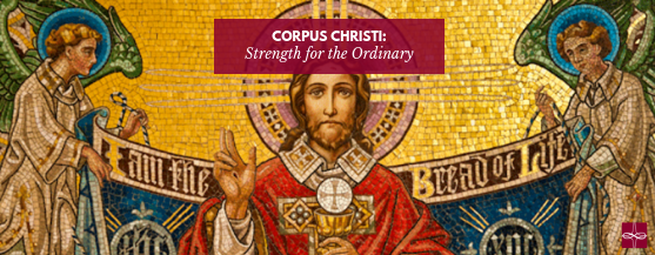

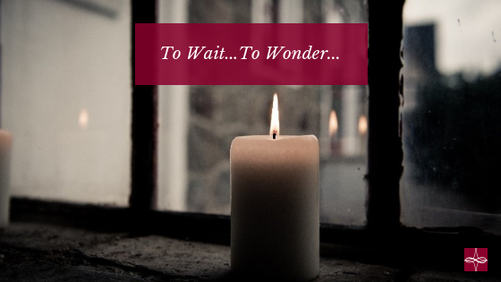

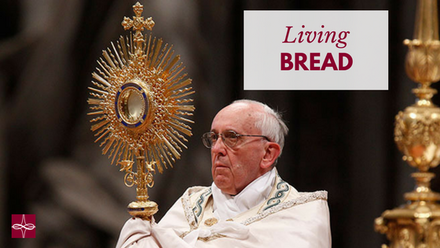

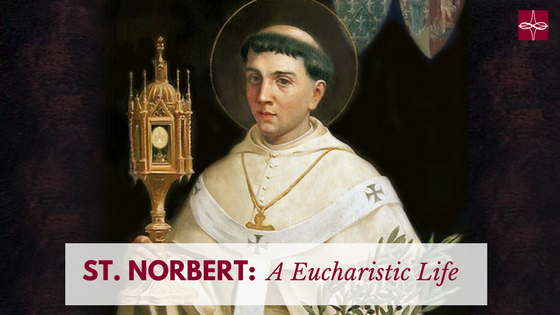

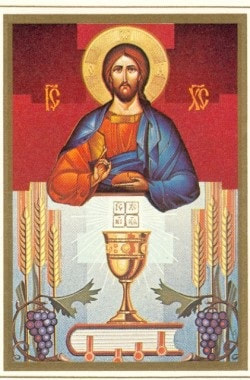
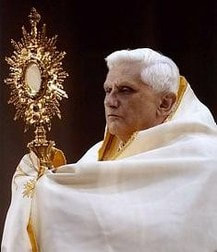
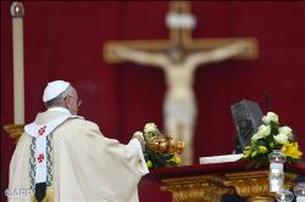
 RSS Feed
RSS Feed